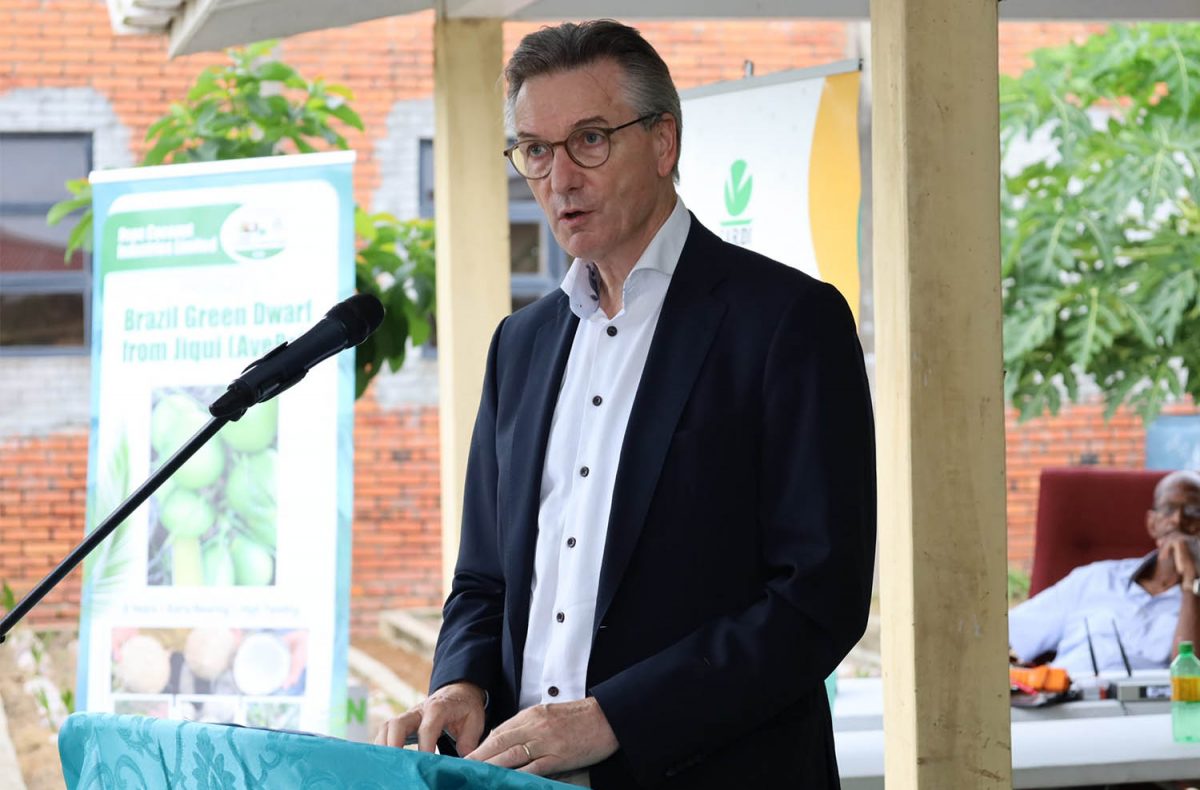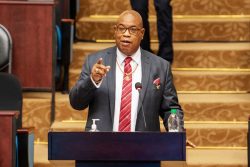EU Ambassador René van Nes on Friday called for the statutes of international law to be respected, in relation to Venezuela’s proposed referendum on Essequibo and Guyana’s request for provisional measures, which the International Court of Justice (ICJ) will hear on November 14.
This was in response to a question posed by Stabroek News on Friday during a press conference at the European Union Delegation’s office in Georgetown.
“We follow everything that is happening and obviously we note how delicate the situation is and so the EU’s position is that international law must be respected and the multilateral institutions are the appropriate framework for addressing international disputes,” van Nes replied.
“The recent statements and actions we have been following closely and we call on all parties involved, especially Venezuela, to avoid unilateral actions or escalations in light of the ongoing court procedures at the International Court of Justice.
“We cannot tell these countries what to do but we are just asking the involved parties to refrain from any action that can potentially prejudice the ICJ’s decision”, he said.
The ICJ said on Friday that it will hold public hearings on November 14 on Guyana’s request for provisional measures related to a referendum planned by Venezuela on December 3 on Essequibo which is the substance of a case currently being heard by the Holland-based tribunal.
On October 30, Guyana requested the Court to indicate the following provisional measures:
“1. Venezuela shall not proceed with the Consultative Referendum planned for 3 December 2023 in its present form;
“2. In particular, Venezuela shall not include the First, Third or Fifth questions in the Consultative Referendum;
“3. Nor shall Venezuela include within the ‘Consultative Referendum’ planned, or any other public referendum, any question encroaching upon the legal issues to be determined by the Court in its Judgment on the Merits, including (but not limited to):
“a. the legal validity and binding effect of the 1899 Award;
“b. sovereignty over the territory between the Essequibo River, and the boundary established by the 1899 Award and the 1905 Agreement; and
“c. the purported creation of the State of ‘Guayana Esequiba’ and any associated measures, including the granting of Venezuelan citizenship and national identity cards.”
The ICJ in a press statement said that hearings on November 14 will be devoted to the request for the indication of provisional measures submitted by Guyana on 30 October 2023.
It stated, “In its Request, Guyana states that `[o]n 23 October 2023, the Government of Venezuela, through its National Electoral Council, published a list of five questions that it plans to put before the Venezuelan people in a . . . ‘Consultative Referendum’ on 3 December 2023’. According to the Applicant, the purpose of this referendum is `to obtain responses that would support Venezuela’s decision to abandon [the current proceedings before the Court], and to resort instead to unilateral measures to ‘resolve’ the controversy with Guyana by formally annexing and integrating into Venezuela all of the territory at issue in these proceedings, which comprises more than two-thirds of Guyana.”
The Government of Guyana a few weeks ago issued a statement denouncing the aggressive new measures taken by Venezuela in furtherance of its “groundless and unlawful territorial claim” to Essequibo.







